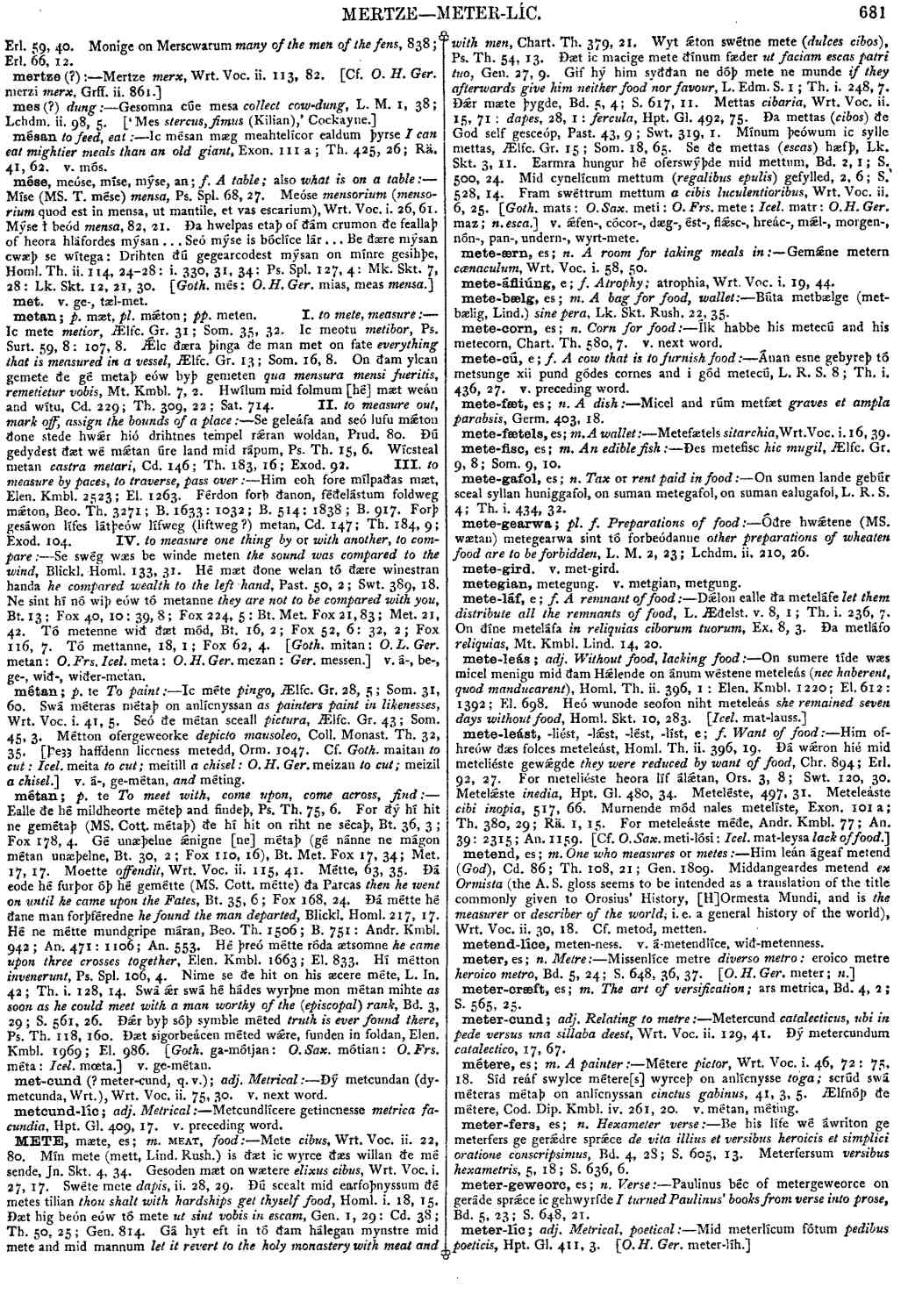métan
- verb [ strong ]
-
Ealle ðe hé mildheorte méteþ and findeþ,
- Ps. Th. 75, 6.
-
For ðý hí hit ne gemétaþ (MS. Cott. métaþ) ðe hí hit on riht ne sécaþ,
- Bt. 36, 3 ;
- Fox 178, 4.
-
Gé unæþelne ǽnigne [ne] métaþ (gé nánne ne mágon métan unæþelne,
- Bt. 30, 2 ;
- Fox 110, 16 ),
- Bt. Met. Fox 17, 34 ;
- Met. 17, 17 .
-
Moette
offendit,
- Wrt. Voc. ii. 115, 41.
-
Métte,
- 63, 35.
-
Ðá eode hé furþor óþ hé gemétte (MS. Cott. métte) ða Parcas
then he went on until he came upon the Fates,
- Bt. 35, 6 ;
- Fox 168, 24.
-
Ðá métte hé ðane man forþféredne
he found the man departed,
- Blickl. Homl. 217, 17.
-
Hé ne métte mundgripe máran,
- Beo. Th. 1506 ;
- B. 751: Andr. Kmbl. 942 ;
- An. 471: 1106 ;
- An. 553.
-
Hé þreó métte róda ætsomne
he came upon three crosses together,
- Elen. Kmbl. 1663 ;
- El. 833.
-
Hí métton
invenerunt,
- Ps. Spl. 106, 4.
-
Nime se ðe hit on his æcere méte,
- L. In. 42 ;
- Th. i. 128, 14.
-
Swá ǽr swá hé hádes wyrþne mon métan mihte
as soon as he could meet with a man worthy of the (episcopal) rank,
- Bd. 3, 29 ;
- S. 561, 26.
-
Ðǽr byþ sóþ symble méted
truth is ever found there,
- Ps. Th. 118, 160.
-
Ðæt sigorbeácen méted wǽre, funden in foldan,
- Elen. Kmbl. 1969 ;
- El. 986.
Bosworth, Joseph. “métan.” In An Anglo-Saxon Dictionary Online, edited by Thomas Northcote Toller, Christ Sean, and Ondřej Tichy. Prague: Faculty of Arts, Charles University, 2014. https://bosworthtoller.com/22709.
Checked: 1